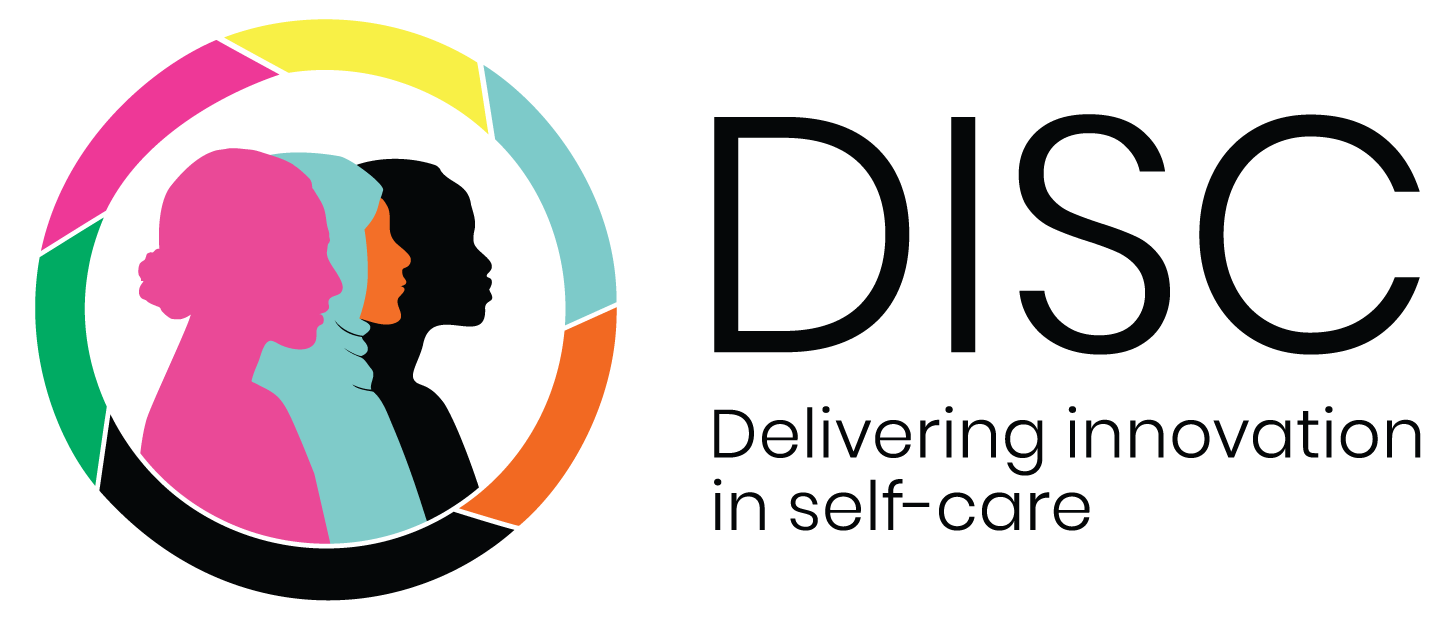About Us
DISC is a project that supports women to assume greater power and control over their sexual and reproductive health by using contraceptive self-care methods like self-inject—which can help her to achieve her life goals by delaying or preventing pregnancy if she so chooses. Now in its second phase, supported by Children’s Investment Fund Foundation and the Gates Foundation, and in partnership with Ministries of Health, healthcare provider networks, and other key stakeholders, we are integrating self-care methods into health systems, bringing care closer to consumers, and amplifying their voice, choice and agency.

Active since 2020, DISC currently works in Nigeria, Uganda, Malawi, Zambia, Mozambique, Kenya, Pakistan, and Ethiopia via a consortium model, in collaboration with local and global family planning stakeholders.
“Achieving health for all includes empowering and educating people to become active decision-makers in their own health. That’s what self-care is all about.”
— Dr. Tedros Adhanom Ghebreyesus
Director General of the World Health Organization
Women Deserve More
Today, more than 218 million women of reproductive age in low- and middle-income countries (LMIC) who want to avoid pregnancy don’t use modern contraceptives. Each year, 111 million unintended pregnancies occur in LMICs, accounting for 49% of all pregnancies in those countries, which include sub-Saharan Africa. Limited contraceptive options and barriers to access are known to significantly increase women’s risk of experiencing maternal health complications and unsafe abortions. Self-care methods such as self-inject contraceptives—which can offer women greater control, convenience, and the ability to use discreetly—can help change that.
CONTRACEPTIVE
SELF-INJECTION IS
A GAME-CHANGER
Quick facts about
CONTRACEPTIVE SELF-INJECTION
20
INTRODUCED
2o YEARS AGO
75
APPROVED IN NEARLY 75COUNTRIES
?
Yet, a majority of DMPA-SC units are still provider-administered, with the self-inject option not being consistently offered to women
INTEGRATING SELF-CARE
into health systems
In partnership with the Self-Care Trailblazers Group, the DISC initiative has supported Ministries of Health to develop national self-care guidelines aligned with WHO recommendations. This includes support for Nigeria’s take-home dose policy, incorporation of the empathy-based self-inject curriculum into Uganda’s national DMPA-SC training, and the 2024 finalization of a Memorandum of Understanding (MoU) in Malawi enabling self-injection services in eligible private sector entities. DISC strengthens health system performance by supporting supply chain management, training healthcare providers, and enhancing data reporting systems to sustainably expand the contraceptive method mix.
Partners & Stakeholders
Consortium Members
- Society for Family Health (SFH) Nigeria
- Marie Stopes Reproductive Choices
- Jhpiego
- Family Health Services (FHS)
- Amref Health Africa
- Family Planning Association of Malawi (FPAM)
- Pathfinder
- InSupply
- Population Services Kenya
- Viya Health
- AMOG
- Coalizão
Key Collaborators
- Ministry of Health Uganda
- Ministry of Health Nigeria
- Ministry of Health Malawi
- Ministry of Health Zambia
- Ministry of Health Pakistan
- Ministry of Health Mozambique
- Ministries of Health Kenya
- Ministries of Health Ethiopia
- The Injectables Access Collaborative
- Self Care Trailblazers Group (SCTG)
- Viamo
Scaleup Partners
Adolescents 360 project (A360)












